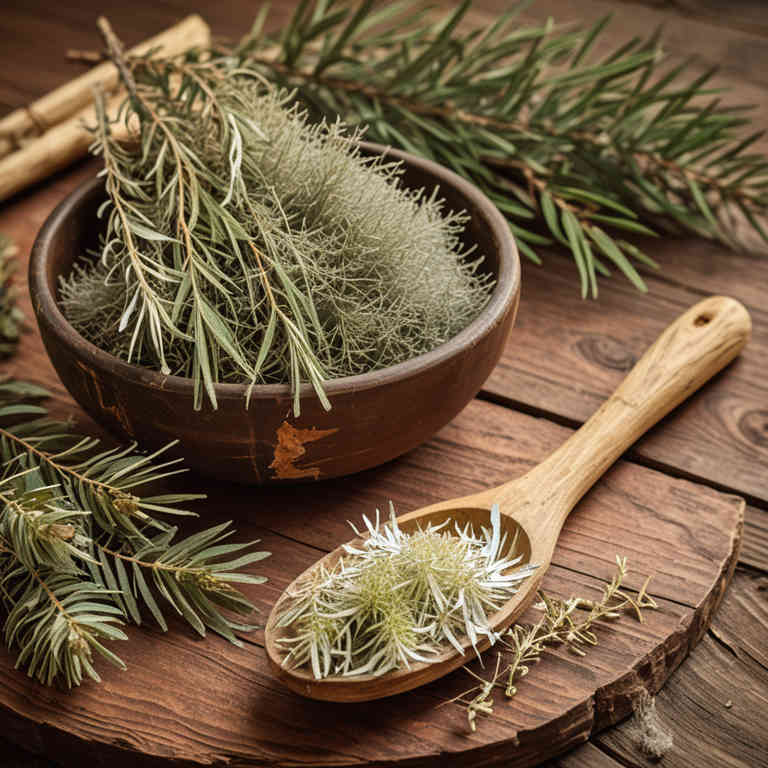Melaleuca alternifolia decoction for medicinal use

Melaleuca alternifolia decoction is a traditional herbal preparation made by boiling the leaves of the tea tree, which is native to Australia.
This decoction is known for its antimicrobial and anti-inflammatory properties, making it a valuable remedy in herbal medicine. It is commonly used to treat skin infections, respiratory conditions, and as a natural disinfectant. The active compound, tea tree oil, is often extracted from the decoction for use in topical applications and aromatherapy.
In herbalism, it is valued for its ability to support immune health and promote healing in various ailments.
Uses
Melaleuca alternifolia decoction has been used to treat a variety of ailments for thousands of years, particularly by Indigenous Australian communities who have long recognized its medicinal properties.
Historically, it was used for its antiseptic and anti-inflammatory properties to clean wounds, treat skin infections, and support respiratory health. In traditional use, the decoction was also employed to alleviate symptoms of colds, sore throats, and digestive issues. Modern applications have expanded its use to include immune support, as well as in complementary medicine for its potential antimicrobial and antioxidant effects.
Today, it is widely used in herbal remedies and natural health products, often in the form of tea or topical applications.
Benefits
Melaleuca alternifolia decoction has health benefits such as antimicrobial, anti-inflammatory, and immune-boosting properties.
It is commonly used to support respiratory health by alleviating symptoms of colds, coughs, and sinusitis. The decoction may also aid in wound healing and reduce skin infections due to its natural antiseptic qualities. Additionally, it is believed to help with digestive issues and may provide relief from minor skin irritations.
This traditional herbal remedy is valued for its natural ability to promote overall wellness and support the body's natural defenses.
Constituents
Melaleuca alternifolia decoction active constituents include terpenoids, particularly terpinen-4-ol, which is known for its antimicrobial properties.
These compounds contribute to the decoction's effectiveness in combating bacterial and fungal infections. Additionally, the decoction contains flavonoids and phenolic acids that may support immune function and reduce inflammation. It is commonly used in traditional medicine for its antiseptic and wound-healing benefits.
The combination of these active constituents makes Melaleuca alternifolia decoction a valuable herbal preparation for various health applications.
Preparation
To make Melaleuca alternifolia decoction, begin by gathering fresh or dried leaves of the tea tree, ensuring they are free from contaminants.
Next, measure out approximately 1 teaspoon of the leaves and add them to a pot containing 250 ml of water. Bring the mixture to a boil, then reduce the heat and let it simmer for about 10 to 15 minutes to extract the beneficial compounds. Strain the liquid through a fine mesh or cheesecloth to remove the plant material, and allow the decoction to cool slightly before use.
This preparation is often used for its antimicrobial properties and can be consumed as a tea or applied topically for skin conditions.
Side Effects
Melaleuca alternifolia decoction may lead to gastrointestinal discomfort, including nausea, vomiting, and diarrhea, due to its high concentration of active compounds.
It can also cause allergic reactions in individuals sensitive to tea tree oil, manifesting as skin rashes, itching, or respiratory issues. Prolonged use may result in liver toxicity, as some studies suggest potential harm to liver function. Additionally, it may interact with certain medications, reducing their effectiveness or increasing the risk of side effects.
It is important to consult a healthcare professional before using this preparation, especially for prolonged periods or in high doses.